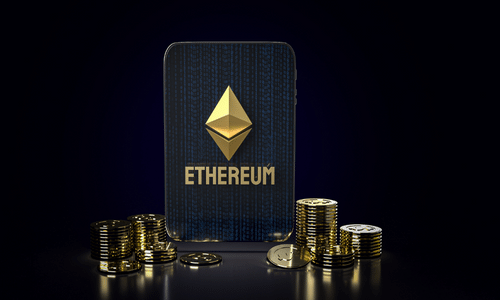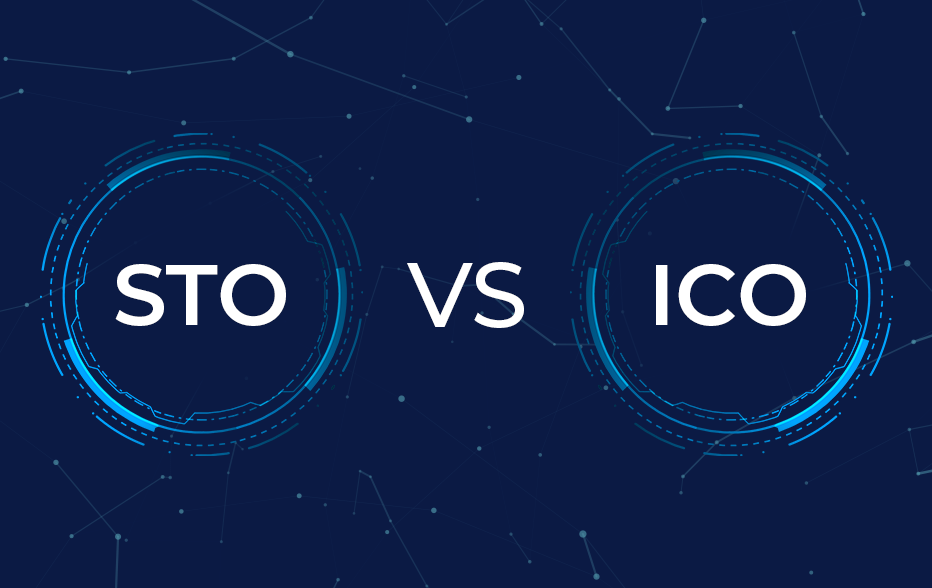What is Ethereum (ETH), and how does it work?

If you’ve ever heard the words “blockchain” or “cryptocurrency,” you’ve probably heard of Ethereum. Ethereum has the second-largest market value; only Bitcoin is higher in the entire blockchain sphere. Ethereum holds much importance to the blockchain and cryptocurrencies, as many smart contracts and decentralized applications run on this blockchain.
Background on Ethereum
Ethereum is a decentralized blockchain technology-based platform. Ethereum establishes a network that runs and contains smart contracts. Smart contracts are pieces of application code that are the underlying technology of decentralized applications. By using smart contracts, individuals may do business without relying on a central authority.
The views of developers, companies, several sectors, and our way of life have already been disrupted by these new technologies developed on the Ethereum blockchain. Ethereum is designed to be programmable, decentralized, secure, and scalable.
What Is Ether?
On the Ethereum blockchain network, Ether is held and exchanged, and this network offers a vast array of different services in addition to ETH. Ether may be used as a form of investment or a digital currency for conducting financial transactions.
For example, smart contracts are one of Ethereum’s most compelling applications. Smart contracts are when two parties agree to supply products or services in the future, and lawyers aren’t needed for these contracts. The agreement terms are coded on Ethereum, which self-executes and provides Ether once the contract criteria are satisfied.
How does Ethereum work?
Ethereum is based on the blockchain, but unlike other cryptocurrencies, the Ethereum platform can be used for a much more comprehensive range of applications. Ethereum stores data and runs decentralized apps. On the Ethereum blockchain, anybody may host their apps; Users have total control over their data and the application without a central authority, enabling them to use it without limitation.
Moreover, a new consensus system for Ethereum will be implemented as proof-of-stake. Owners of ETH will “stake” their tokens. Ether must be staked as compensation for mining rights to prevent it from being utilized for actual transactions. Under this protocol, no network member has to fight for benefits. For every ether-staked user, the protocol will randomly select one to verify transactions and reward them with ether tokens.
Wallets are where Ethereum users store their Ether. You can use a wallet to get to your Ether, and you use private keys in your wallet when you buy or sell something. A private key is made for every token, and this key is the only way to use and transact your Ether.
Ethereum vs. Bitcoin
People often compare Bitcoin and Ethereum. Even though there are many similarities between the two cryptocurrencies, it’s important to point out the differences.
The phrase “the world’s most programmable blockchain” refers to Ethereum, an electronic network that can be programmed. In contrast, Bitcoin’s blockchain was built only to store and transfer digital money.
Even though there is no limit to how much ETH can be made, the amount that can be made each year is set by how long it takes to process each block. Currently, there are now roughly about 120 million Ethereum tokens in circulation. On the other hand, only 21 million Bitcoins have ever existed.
When comparing the Ethereum and Bitcoin networks, it’s important to note the different transaction costs. Participants in Ethereum transactions are responsible for paying these “gas” costs, referred to as such on the Ethereum network. In comparison, there are no transaction fees for Bitcoin transactions since the Bitcoin network takes care of them.
Furthermore, the primary purpose of Bitcoin is to serve as a medium of exchange and a way of storing the value as an alternative to currently accepted fiat currencies. Data associated with Bitcoin network transactions are often only used to keep track of transactions. However, smart contracts and NFTs are only two examples of how Ethereum’s programmable blockchain may be used. Ethereum uses an algorithm called Ethash, which is faster than Bitcoin’s block time (which might take minutes), while Bitcoin uses SHA-256, which is slower.
| Bitcoin | Ethereum | |
|---|---|---|
| Creator(s) | Satoshi Nakamoto | Vitalik Buterin |
| Release Date | January 9, 2009, | July 30, 2015, |
| Release Procedure | Early mining | Raised $ 18 million in Bitcoin by presale |
| Consensus Technique | Proof-of-Work | Proof-of-Work – moving to Proof-of-Stake |
| Block Time | Average time is 10 minutes | Average time is 15 seconds |
| Supply | 21 million BTC | Unlimited Supply |
| Market Cap | 18 billion | 1 billion |
| Vision | Digital money | Smart contracts |
| Cryptocurrencies used | Bitcoin (BTC) | Ether (ETH) |
How to buy Ethereum
Everyone should be able to buy and sell Ethereum on an authorized basis. Secure exchange to fully benefit from the revolutionary potential that Ethereum has for all of us. With the INX platform, you may list and trade cryptocurrencies with the certainty that all transactions are done in conjunction with all relevant regulations while protecting your privacy and security with industry-standard security measures.
With three easy actions, anybody can get their hands on Ethereum and begin trading.
Registering for an INX account is as simple as following these three simple steps (crypto.inx.co)
- Register and verify your account
- Fund your account/wallet with no minimum fee to invest.
- Purchase cryptocurrency.
FAQ
How to use Ethereum?
Once you’ve deposited money into your account, you may use it to buy Ether and other assets at the current Ethereum price. Coins may be held, sold, or traded for other cryptocurrencies once they are in your account.
Is Ethereum a Cryptocurrency?
The Ethereum network has its token, Ether, abbreviated as ETH. Decentralized applications may be built on the Ethereum blockchain platform. The ETH cryptocurrency is often known as Ethereum. Ethereum is a blockchain-powered platform, and Ether is its currency.
Is ETH a coin or a token?
Ether is the transactional token that allows Ethereum network activities. Even though Ether might be considered the coin of the Ethereum network, it is more correct to refer to it as the “fuel” of the network.
Is Ethereum money?
Cryptocurrency Ethereum is known as ETH. It’s a digital currency with a limited supply that can be used on the internet, like Bitcoin. ETH differs from the conventional currency in many ways that may be helpful if you’re new to the crypto world.
David Azaraf November 14, 2021
Crypto enthusiast, help businesses plug into the token economy





